158: Why Brands Certify Their Wines Sustainable | Marketing Tip Monday
Over the past two weeks, we've looked at studies showing that people everywhere have been making more sustainable purchases, and how they are doing this by seeking out products with eco-certifications -- and wine is no exception! The wine market is steadily growing, and the majority of sales come from retail outlets. This is why putting the SIP Certified seal on your bottle is the best way to be sure your wine isn't being overlooked when shoppers are out looking for sustainable wines.
Welcome to Marketing Tip Monday with SIP Certified. We know customers are looking for wines labeled as sustainable. While our longer-form episodes help you learn about the latest science and research for the wine industry, these twice-monthly micro podcasts will help you share your dedication to sustainable winegrowing so you can show your customers that you share their values.
Today we share why our member get certified.
When wine enthusiasts see the SIP Certified seal on your bottle, they know they are looking at a wine that was made with conscious care for the people and the planet.
But don't take it from us -- here's what fellow SIP Certified members have to say about certifying their wines:
Sincerity, Vetting, & Media Coverage!
From consumers to employees, and from vineyards to media, Adam LaZarre, Director of Winemaking at Wine Hooligans, tells us that the rigid requirements for attaining SIP Certified wine have been well worth the time and dedication:
“For us, having our wines SIP Certified is easily the best way to let our entire audience know we are sincere about doing the right thing for the health of our vineyards, customers, and employees. The requirements for certification are pretty rigid but are easily obtained provided you maintain some detailed record-keeping. That is an important aspect actually because it ensures that the third-party inspector can vet the entire process completely. I know for a fact that this is a HUGE selling point for our wines and it also gives the media an extra topic of discussion that they and their audience can sink their teeth into. For us, it’s been an extra paragraph or two in the magazines or another five minutes on the radio. It’s clearly one of the biggest bangs for your buck and for many of our clients, just as important as the quality and price of what’s in the bottle.”
Sharing Common Goals
"The three pillars of the SIP Certified Model lays the foundation of our winery’s values and drives our commitment to sustainability. By having our wines SIP Certified, our consumers are actively supporting a system of winegrowing that is done with conscious care for the planet. It is extremely beneficial to us to share this common goal with our consumers and continue to make wines with people, the planet, and prosperity in mind."
- Fred Delivert, Winemaker, Tolosa Winery
Fred adds that their tracking software, Vintrace, makes the process "very easy." All of the block-to-bottle documentation required for the audit process can be pulled from major tracking systems, meaning that if you are using winemaking tracking software, you likely already have all of the necessary records on file!
The Legitimacy of Well-Respected Third-Party Organizations
"We choose to have our wines certified because of the legitimacy of well-respected third-party organizations like SIP Certified. Designating our wines as sustainable brings a cache with it that the consumer finds really valuable."
- Tamara Bingham, Brand Manager, Cambria Estate Winery
Tamara notes that their auditor is helpful in guiding her and the winemaking team through the certification process, and that the process is painless and easy!
Get in on these benefits!
If you're making your wine with SIP Certified grapes, your brand can experience these benefits, as well!
Any wine made with at least 85% SIP Certified fruit -- estate or purchased -- can bear the SIP Certified seal. All you need to do is complete a Wine Application (page 35 of the Information Package) and send it to a Wine Inspector. The inspection is all done remotely via email exchange of chain of custody documentation.
Inspections range from 1 to 5 hours depending on the number of wines on the application. Fees range from $100-$175 per hour and are paid directly to your inspector. Certification rates are on an annual production basis and can be viewed here.
Visit our Get Certified: Wine page to read more about wine certification, and email mailto:whitney@vineyardteam.org ?subject=SIP Certified Wines if you have any questions.
Check out the show notes for links to this article, research on consumer purchasing preferences, a link to get your wines certified, and sign up for our biweekly Marketing Tips newsletter. Until next time, this is Sustainable Winegrowing with the Vineyard Team.

